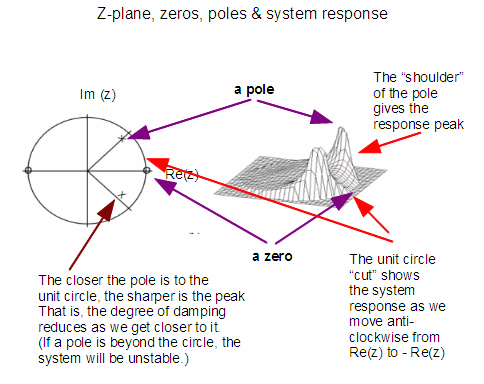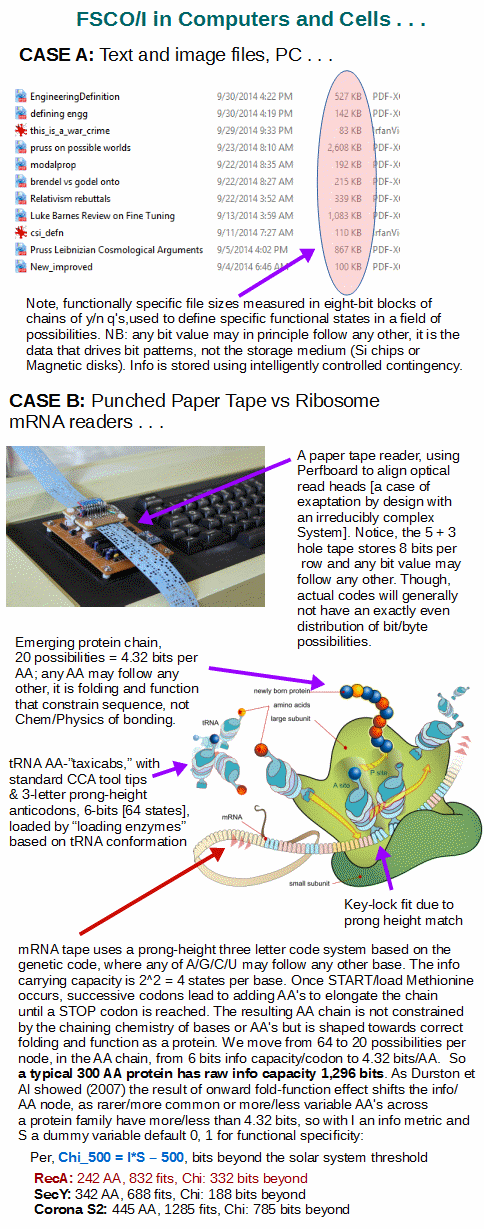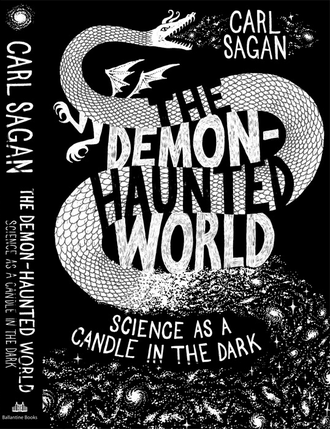Sometimes, we see a classic comment by objectors that reveals much about what we face. Accordingly, it is appropriate to headline the remark and a response (which I will use original post powers to augment slightly):
Here is AS:
Rebuttals of what? The simple fact is that religious dogmas are made up. They have no existence in reality beyond human imagination. The boot is one the other foot. If you have evidence of the objective reality of some religious concept, then, bring it on.
Here is my response:
_______________
>> AS:
I saw Timaeus commenting [–> cf. here, especially], who is always worth a read. In your exchange with him you tossed this atheistical talking point, which drips with contempt and inadvertent revelation:
[AS:] The simple fact is that religious dogmas are made up. They have no existence in reality beyond human imagination.
On what grounds do you know that “religious dogmas” — loaded and neatly vague terms — are “made up”?
With all due respect and on fair comment, you come across here as inappropriately contempt-filled, dismissive and ignorant, if you can pardon direct words that are as direct as your own.
I will explain.
First, we all have worldviews which at core have faith commitments that are unprovable. Otherwise the quest for certainty or “proof” leads to infinite stepwise regress and/or circularity. The issue is what faith-point we hold, why.

[I add Feb 3,] this leads to the turtles all the way down vs turtles in a circle vs the last turtle has to stand on adequate footing challenge:

[I add Feb 2,] the late Dallas Willard on worldviews, here, is worth a watch, if you find readings on worldviews a chore:
[youtube X6hwsG7AUZ0]
Second, ethical theism is at first level philosophical, not a matter of a “dogma.”
That is, it is a reasonable and defensible faith-point on comparative difficulties, to hold for first pre-theistic instance that the best explanation of a fine tuned cosmos and of life that from cells on up is chock-full of coded information, organised algorithm executing machines, and functionally specific complex organisation is design.

Where too — in a world where there is no more reason to doubt the general testimony of conscience that we are under the government of ought than to doubt our ability to access mathematical realities and to perceive the external world — the only serious candidate for a foundational IS that grounds OUGHT is the inherently good Creator-God, a necessary and maximally great being. (Cf. here and here on what this is about.)
Next, you need to face the dogmatic implications of the sort of a priori evolutionary materialist scientism that has been drummed into the zones of our civilisation that hold intellectual pretensions. For instance, here is Lewontin’s frank acknowledgement [in his 1997 NYRB review of Sagan’s The Demon-Haunted World], which your cited remark quite directly echoes:
. . . the problem is to get them [hoi polloi] to reject irrational and supernatural explanations of the world, the demons that exist only in their imaginations, and to accept a social and intellectual apparatus, Science, as the only begetter of truth [–> NB: this is a knowledge claim about knowledge and its possible sources, i.e. it is a claim in philosophy not science; it is thus self-refuting]. . . .
It is not that the methods and institutions of science somehow compel us to accept a material explanation of the phenomenal world, but, on the contrary, that we are forced by our a priori adherence to material causes [–> another major begging of the question . . . ] to create an apparatus of investigation and a set of concepts that produce material explanations, no matter how counter-intuitive, no matter how mystifying to the uninitiated. Moreover, that materialism is absolute [–> i.e. here we see the fallacious, indoctrinated, ideological, closed mind . . . ], for we cannot allow a Divine Foot in the door . . . [From: “Billions and Billions of Demons,” NYRB, January 9, 1997. In case you imagine this is “quote-mined” I suggest you read the fuller annotated cite here.]
This declares a cultural agenda and triumphalistic narrative, rooted in a priori — thus, dogmatic in the bad sense — imposition of evolutionary materialism, contempt to those who differ and adherence to the notion that “science” so defined is the fountainhead of truth and knowledge. Implicit, is the view that if one dares to differ (especially on theistic grounds) one can only be ignorant, stupid, insane or wicked. That theme starts in the title for Sagan’s The Demon-Haunted World . . . given the loaded nature of that term in our time. It continues through the dismissive notion that theism is delusional, and it culminates in a triumphalism that is at best ill advised and question-begging.
Fail.
Fail, precisely because of ill-advised contempt for serious worldviews level reflection driven by naive and self-referentially incoherent scientism:
scientism . . . 2. the belief that the assumptions and methods of the natural sciences are appropriate and essential to all other disciplines, including the humanities and the social sciences. [-Ologies & -Isms. Copyright 2008 The Gale Group, Inc.]
You will also note that I have focussed on a worldview approach so far, as opposed to that broad-brush dismissive term, “religion.” That is to emphasise the first level of the issue.
I am not letting slide that the above is primarily meant to attack the Judaeo-Christian worldview, and particularly the faith of Christians who have not compromised with the dominant atheism of the intelligentsia.
I suggest on this, that you may find here on at useful first level, a summary of the historically anchored warrant for Christian faith and discipleship. (Including a useful introductory video.)
[vimeo 17960119]
While many Christians — as are most people in general — are not particularly academically sophisticated or inclined, the Christian Faith is not merely a matter of imaginary notions imposed by priestcraft.
For me, at first level, the mere fact that I am sitting here to type this is a reminder that apart from a miracle of guidance in answer to prayer I would have died of a chronic disease decades ago. Millions across the ages have a similar direct experience of encounter with the living God, which is not going to be surrendered in the face of mere skeptically dismissive notions, even those that are dressed up in the lab coat. A reality beats a rhetorical talking point every-time.
And, the failure of the dismissive skeptics to seriously engage with the broad reality of experience of God in life for millions across time and across the globe (ironically, a failure to be adequately empirical), is a red flag sign to many of these same ordinary people. A sign that they are dealing with closed minded indoctrinated selective hyperskepticism backed up by glib talking points. And, too often by intimidation in institutions, as Timaeus has aptly summarised.
I further put it to you, that there is indeed a fairly aggressive radically secularist agenda at work across our civilisation, one that has rewritten history to make “religion” out to be the enemy of “progress.” One that imagines that dressing up in a lab coat and taking science hostage to materialism is the vanguard of progress. One that fails to realise the fatal flaws in such materialism that have been on record since Plato’s warning in The Laws, Bk X, 2350 years ago — yes, the pagan philosophers took the measure and found materialism sadly wanting long ago, even before theism was a major force in our civilisation:
Ath. . . .[The avant garde philosophers and poets, c. 360 BC] say that fire and water, and earth and air [i.e the classical “material” elements of the cosmos], all exist by nature and chance, and none of them by art . . . [such that] all that is in the heaven, as well as animals and all plants, and all the seasons come from these elements, not by the action of mind, as they say, or of any God, or from art, but as I was saying, by nature and chance only [ –> that is, evolutionary materialism is ancient and would trace all things to blind chance and mechanical necessity] . . . .
[Thus, they hold] that the principles of justice have no existence at all in nature, but that mankind are always disputing about them and altering them; and that the alterations which are made by art and by law have no basis in nature, but are of authority for the moment and at the time at which they are made.- [ –> Relativism, too, is not new; complete with its radical amorality rooted in a worldview that has no foundational IS that can ground OUGHT.] These, my friends, are the sayings of wise men, poets and prose writers, which find a way into the minds of youth. They are told by them that the highest right is might [ –> Evolutionary materialism — having no IS that can properly ground OUGHT — leads to the promotion of amorality on which the only basis for “OUGHT” is seen to be might (and manipulation: might in “spin”)], and in this way the young fall into impieties, under the idea that the Gods are not such as the law bids them imagine; and hence arise factions [ –> Evolutionary materialism-motivated amorality “naturally” leads to continual contentions and power struggles influenced by that amorality], these philosophers inviting them to lead a true life according to nature, that is,to live in real dominion over others [ –> such amoral factions, if they gain power, “naturally” tend towards ruthless abuse], and not in legal subjection to them
Domineering, dogmatic factionalism driven by ideologies that have in them no foundational IS capable of grounding OUGHT precisely describes what we face today, to the detriment of our civilisation.
I close with a warning from one of the Hebrew prophets, Isaiah, a warning that looks likely to become the epitaph of our civilisation, on current trends:
Isa 5:18 Woe to those who draw iniquity with cords of falsehood,
who draw sin as with cart ropes,
19 who say: “Let him be quick,
let him speed his work
that we may see it;
let the counsel of the Holy One of Israel draw near,
and let it come, that we may know it!”20 Woe to those who call evil good
and good evil,
who put darkness for light
and light for darkness,
who put bitter for sweet
and sweet for bitter!21 Woe to those who are wise in their own eyes,
and shrewd in their own sight! [ESV]
KF>>
_______________
We need to understand what we face, and where it can all too easily end up. END
PS: Andre, in the comments below, refers motors in the living cell.
Let us picture the flagellum:
. . . and the ATP Synthase enzyme:



